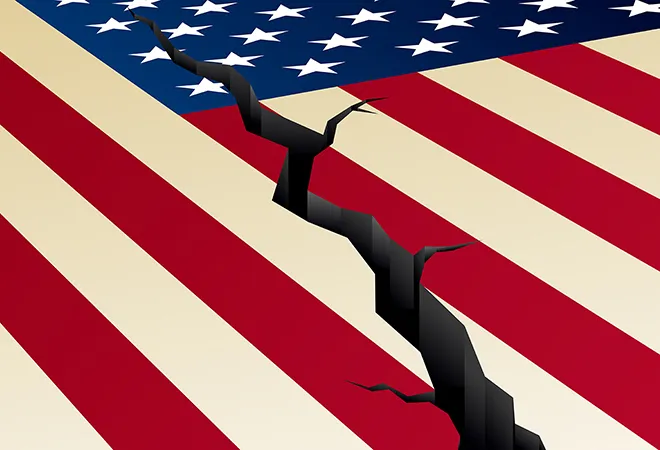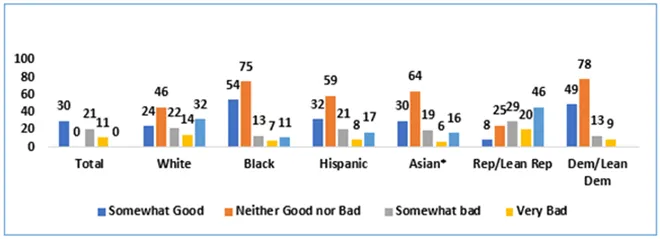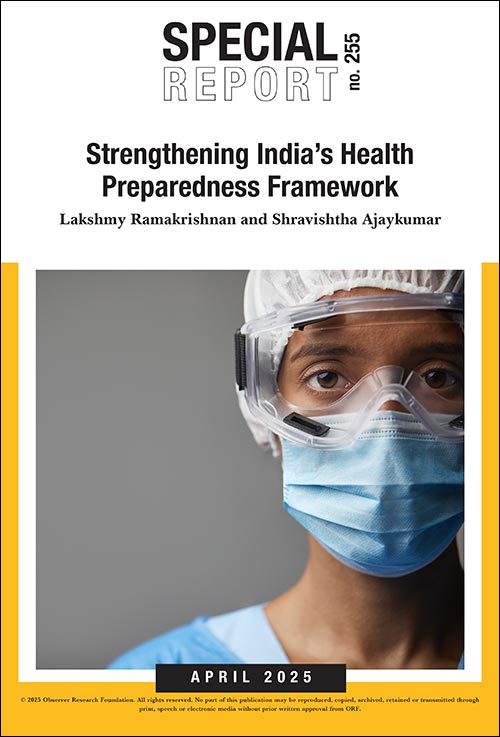
A series of conservative decisions by the Supreme Court of the United States (SCOTUS) has recentred the Republican-Democrat divide in the country. SCOTUS recently overturned race-based admissions, struck down the Biden administration’s proposal to pardon student loans, and apparently legislated against the LGBT community’s rights while defending the individual liberty of a web designer who refused to serve a member of the community. These decisions are reflective of a broader political divide in the United States (US), epitomised by a perception that a biased SCOTUS itself may be a threat to democracy. The recent decisions by the SCOTUS could impact how voting, race, religion, and individual choices have intersected to shape the American political zeitgeist.
At least two of these decisions are assessed to radically change the higher education space in the US. In particular, the SCOTUS’ decision to end race-based affirmative action at Harvard University has ignited political debates regarding its implications for equality and diversity on college campuses. On June 29, SCOTUS banned the considerations of race in higher education admission decisions, through race-based affirmative action programmes. This decision, authored by Chief Justice John Roberts with a 6-3 majority in Students for Fair Admissions, Inc. v. University of North Carolina and a 6-2 majority in Students for Fair Admissions, Inc. v. President & Fellows of Harvard College, argued that these programmes violated the Equal Protection Clause of the 14th Amendment of the US constitution. The rulings against Harvard and the University of North Carolina highlighted the role of Asian Americans in these cases. Both lawsuits alleged that accomplished Asian American applicants were passed over in favour of less academically qualified students. The lawsuit against Harvard revealed that Asian Americans faced a reduction in their personal rating, leading to a difficult discussion about the presence of racial stereotypes in the admissions process.
The recent decisions by the SCOTUS could impact how voting, race, religion, and individual choices have intersected to shape the American political zeitgeist.
The Debate
The US Supreme Court's decision to end race-based affirmative action at Harvard University has generated significant debate regarding equality, diversity, and educational opportunities. Since the 1960s, race-conscious admission policies have been a tool deployed to promote diversity and inclusivity in educational institutions by ensuring that individuals from marginalised communities are not further disadvantaged due to their race or ethnicity. While affirmative action programmes are far from the perfect solution to correct the deeply entrenched discrimination in the country, the elimination of such programmes will likely exacerbate racial inequality in education, the consequences of which will reverberate across the nation’s economic and social landscape.
Proponents of the Supreme Court's decision argue that race-based affirmative action can perpetuate discrimination and hinder meritocracy. They contend that all applicants should be evaluated solely on their qualifications, talents, and achievements, irrespective of their racial or ethnic background. Supporters further suggest that ending race-based affirmative action promotes equal treatment under the law, ensuring fairness in college admissions. In both cases, however, it is argued that since the Equal Protection Clause mandates that individuals in similar situations be treated equally, race-conscious admission decisions were unconstitutional. Unlike the historic overturning of Roe v. Wade that diverged from popular public opinion, polls show that more Americans oppose taking race into account for admissions than favour it. In 2020, “even liberal Californians voted down a referendum to reinstate affirmative action”, which had been banned in the state since 1996. Critics of affirmative action argue that these programmes do not significantly increase representation in educational institutions and are merely a form of ‘positive discrimination’.
The US Supreme Court's decision to end race-based affirmative action at Harvard University has generated significant debate regarding equality, diversity, and educational opportunities.
Affirmative action policies have been a contentious topic in the US, aiming to address historical inequalities and promote diversity in higher education. However, far from unanimity, people in the US are divided on these rulings, symbolised in their political divide. Within the US Congress, the decision was celebrated by the Republicans and rued by the Democrats who called it ‘race-blindness.’ Perhaps, most starkly, the House of Representatives Speaker Kevin McCarthy favoured the decisions by noting that, “Now students will be able to compete based on equal standards and individual merit. This will make the college admissions process fairer and uphold equality under the law,” while Senate Majority Leader Chuck Schumer criticised the decision by saying that, “The Supreme Court ruling has put a giant roadblock in our country’s march toward racial justice”.
The decision, along with the passionate response from both factions, accentuates the clear disparities between the political parties concerning matters of racial equity and the government's involvement in addressing it. In the recent past, these divisions between the two parties have played out openly. This confrontation has taken a prominent position in recent congressional discussions encompassing topics like police misconduct, voting rights, immigration regulations, and criminal justice reform, among others. Perhaps the most glaringly divisive issue has been the issue of race.
Far from unanimity, people in the US are divided on these rulings, symbolised in their political divide.
A conservative Supreme court’s recent decisions, many think, may have pitted it against the Biden administration. The graph below shows that significant racial and partisan disparities exist regarding the perceived societal benefit of increased public attention to the history of racism in the U.S.
Graph 1: Percentage of individuals who believe that focusing more on the history of slavery and racism in America is beneficial for society.

Source: Pew Research
Race Recentred
The ban of race-conscious admission policies will have a cascading impact on representation in other realms of American society. This is also important in the context of the presidential elections in 2024 as the Supreme Court rulings are being seen as a win for the Republican Party and a setback for President Joe Biden’s Democratic Party and the causes which he personally supported. These consecutive US Supreme Court decisions, along with others, could transform how issues of race, rights, and financial access have traditionally intersected with higher education in the country. More importantly, these divisions could potentially lead to political disruptions impacting the national elections next year. The Congressional Black Caucus has been at the centre of criticism of the Supreme Court rulings on affirmative actions, bringing the issue of race into voting choices for the larger Black community in the US.
The ban of race-conscious admission policies will have a cascading impact on representation in other realms of American society.
Race in the US has come to dominate political discourse and is likely to intensify as the country heads into the 2024 national elections. A Republican-led movement played out most astoundingly in Florida in how the state’s governor Ron DeSantis wanted to change how race was taught in schools. De Santis’ Stop W.O.K.E Act railed against the Critical Race Theory calling it state-sponsored racism.
A deep racial divide within the American political milieu is likely to impact US politics in two broad ways, as the Primaries and eventually the presidential polls approach next year. First, the Republican and Democratic parties’ positions on issues of race are likely to remain hinged on particular candidates. For instance, Ron DeSantis, after gaining rapid popularity, has fallen back in his nomination race against Donald Trump. Second, the Democratic Party may gain over the Republican party on the issue of race owing to nominees like Ron DeSantis, who has been criticised for his anti-Black policies in Florida, but most recently because of his controversial justification of slavery.
This political divide will broadly be between academia, Big Tech, students, and Hollywood, who are expected to be more favourable to the Democratic Party, while Republicans will look for the support of Evangelists, Veterans, and the Make America Great Again (MAGA) group.
Race has returned to the forefront of a culture war in the US, which both political parties will use to their advantage in the lead up to the national elections in 2024. This political divide will broadly be between academia, Big Tech, students, and Hollywood, who are expected to be more favourable to the Democratic Party, while Republicans will look for the support of Evangelists, Veterans, and the Make America Great Again (MAGA) group. The Democratic party’s support to issues like race-based admissions, student loan forgiveness, and its broad pro-gender and pro-orientation choices are sometimes seen by the Republicans as a malaise that the country suffers from. These trends are also reflected in meta trends, such as former President Donald Trump leading the Republicans’ nominee race for the national elections in 2024, and the rise of GOP nominees like Vivek Ramaswamy and Ron DeSantis.
Vivek Mishra is a Fellow with the Strategic Studies Programme at the Observer Research Foundation.
Neha Jain is a Mumbai-based researcher who specialises in the intersection between politics and law.
The views expressed above belong to the author(s). ORF research and analyses now available on Telegram! Click here to access our curated content — blogs, longforms and interviews.





 PREV
PREV



